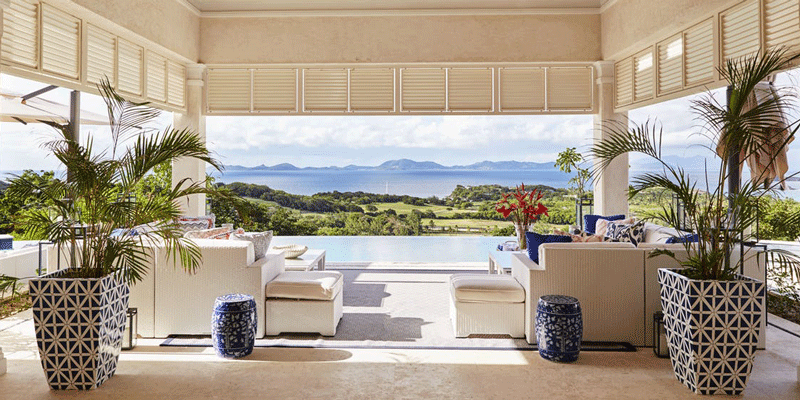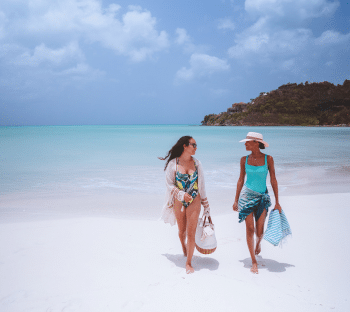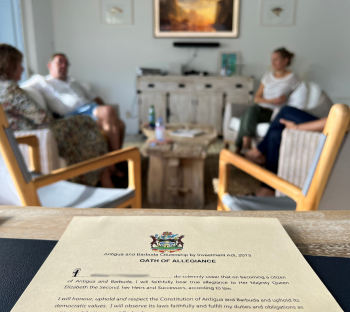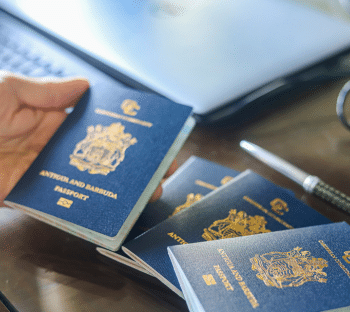By Kal Kennard, Partner
An article recently written by a fellow citizenship professional really hit themes we have been espousing for some time with our Caribbean citizenship clients in relation to property investment and the real opportunities versus the all to common pitfalls.
The properties that are approved for citizenship must be assessed as if they were pure investment propositions or lifestyle purchases and when we use those criteria, many of the projects on offer simply don’t pass muster, so what are the best opportunities for citizenship investors?

There are generally three types of approved property investment in the five Caribbean jurisdictions offering citizenship by investment (CIP) – Antigua & Barbuda, Dominica, Grenada, St Kitts & Nevis and St. Lucia – and those are:
- Limited Partnership shares in branded or other hotels
- Fraction or whole ownership of a hotel room (also called a studio apartment)
- Condo/apartment or villa ownership
Assessing these property development projects is not altogether too complicated. A trip to the Caribbean will be your best investment in the first instance so you can walk the ground, meet the teams and make sure you have a good contact in the ground who will look after your interests and give you fast and honest insight. We need to know:
A) Location
Where is the project located? Is it within an existing operating resort, a greenfield site, near a beach, in a village, how far is it from the airport, areas of interest to potential renters, restaurants and other amenities?
B) Construction Quality
Are there any units currently under construction or completed that you, or a trusted representative, can visit? Is the method of construction tried and tested in the region and on the island? Who is the contractor? Who is the developer? What have the built in the past? Do they have a construction bond in place? What will the finish be like? To optimise your return, it also makes sense to ensure the optimal fixtures and fittings and interior design are in the development plan.
C) Design Quality
Who are the architects and designers? Have they the requisite experience in the region? Are these designs practical for the climate and environment?
D) Operations Team
Who will be managing the property? Who will be marketing it for rental? Who will be overseeing the rental income and sharing of costs/profits? Have they ever managed a property in the Caribbean before? Are they able to show you real rates of returns on other properties they manage or have managed?
E) Exit Strategy
This is a critical point of assessment. After your mandatory 5 year ownership period, who is going to buy your property from you? How will it be marketed? Is it attractive to lifestyle buyers as well as citizenship applicants? Can the person who buys it from you also apply for citizenship? If you are a fractional owner, how does the sales of the whole unit work? What are your rights?
Let’s look at the options in turn:
Limited Partnership Share – this is one that on the face of it looks appealing: a share in a luxury branded resort where the developer is spending millions of dollars on the accommodation and amenities likely in a beautiful beachfront location. However, it’s important to know as a shareholder how many shares are being issued to finance the resort. Can the developer issue new shares at will therefore diluting your interest? Is the rental income share transparent? It should be. What is the cost of the operator? A global brand is almost certain to ensure the property will not make a profit for many years. Branded hotels take many years to break-even in the Caribbean let alone make profit. The operators get paid first leaving the property owner (or shareholders) potentially in a vulnerable position. In addition, your share is only attractive to other CIP investors when you come to resell and that is the biggest stumbling block. What if there is no citizenship program in five years time? To compound the issue, even if the hotel property were to be sold in the future as a whole, in some developments the limited partnership shareholders are not entitled to share in the sales income. Ouch.
Resort Hotel Room / Studio – In a well-run resort, owning a hotel room can provide steady annual income and you can reasonably expect 2-3% and perhaps more if the property does really well. Because these units are generally priced close to the investment minimum, the idea of owning the whole property is one that resonates well with citizenship investors (versus a fractional share). A successful resort in a prime waterfront location truly can offer a good return and even a 600 sq ft studio may sell to a lifestyle buyer in the future. Lifestyle buyers are typically tourists from North America or Europe looking for a Caribbean bolt hole, but it is much more likely to resell to a CIP investors since lifestyle buyers looking for premium-priced studios are few and far between. Most people looking for lifestyle or second home properties would like 2 bedrooms or more. The good news us that in this ownership scenario you are likely to profit should the resort property sell as a whole, for instance if there is a drag-along clause allowing the hotel developer to sell all the assets in one go, you will receive a prorate share for your unit. Some hotels have a mandatory rental pool however you usually will be offered annual usage benefits too, perhaps one or two weeks per year rent-free which is a bonus.
Condo or Villa – These are the traditional lifestyle properties for sun-seeking Europeans and North Americans and this is most likely the best opportunity for investor return, capital appreciation and certainly offers a broader exit strategy since you are not reliant on reselling to another CIP investor. The issue is that the most fruitful and robust end of the property market in the luxury Caribbean is the high-end, and that means spending in the millions versus hundreds of thousands. If you don’t have millions of dollars to place into a Caribbean property even withe the bonus of the passport, I thoroughly recommend looking for opportunities that allow you to invest at the highest end of the market without taking on all the risk yourself i.e purchase a fraction of a newly completed luxury villa that has been valued by an independent surveyor and will be sold in 6 or 7 years time to the lifestyle market and all the shareholders / fraction owners will share in the sales income at that time. You can expect a 2-4% rental return annually on a property that is well-managed and it is de-risked by virtue of the fact that the villa is built, and already being professionally operated. Ideally the seller will guarantee no outgoings for the ownership period as well. That is a deal I can whole-heartedly recommend to citizenship buyers every day of the week. You could even end up net positive on the entire cost of your fraction and citizenship fees.
We have been investing in Antigua for over ten years so we have some knowledge of the ins and outs, the people, the solid opportunities and the pitfalls. If you are going to invest in a property, we recommend:
- Investing at the high end of the market (a share of a luxury villa is better than a small property in a secondary location with dubious rental or resale potential)
- Proven quality (newly constructed is best)
- Desirable location (waterfront or near the beach is best, or inside an operating resort)
- Operated by an experienced team
- The ideal is newly built and earning rental income and if not, you need absolute faith in the developer. Ask lots of questions!
- Does the developer have proven experience and success in the Caribbean and elsewhere?
- Will the property sell easily in the future to the lifestyle market? i.e. wealthy Europeans and North Americans who are not looking for citizenship
What about the business investment route?
The most popular route to citizenship by investment is not an investment at all, it is the fund donation route because it costs less upfront however the cost is approximately US$150,000 (when you take into account the government and other fees involved) and to essentially give that away when there is an alternative, is not ideal. The better route and the most cost-effective route in the medium term is to make a real estate or business investment. There is A LOT of opportunity in specific areas of specific islands in the Caribbean especially in asset-backed high-end property development. If you make the right investment you could easily end up in a net positive situation versus giving away US$150,000. International investors have been investing in and doing well from certain hotspots for years, and well before the passport was an additional attraction.
If you are going to invest in a business, we recommend:
- Asset-backed, first security on assets
- Real-estate development opportunities make great sense since high-end tourism is the most robust industry in many islands.
- Experienced team
- Proven business plan
For more information on real estate and businesses approved for citizenship by investment, speak to one of our team today.


